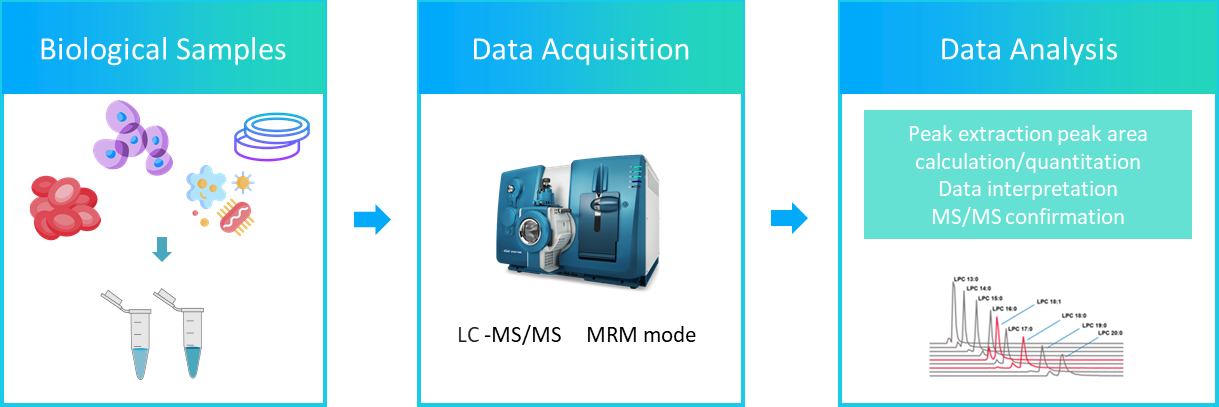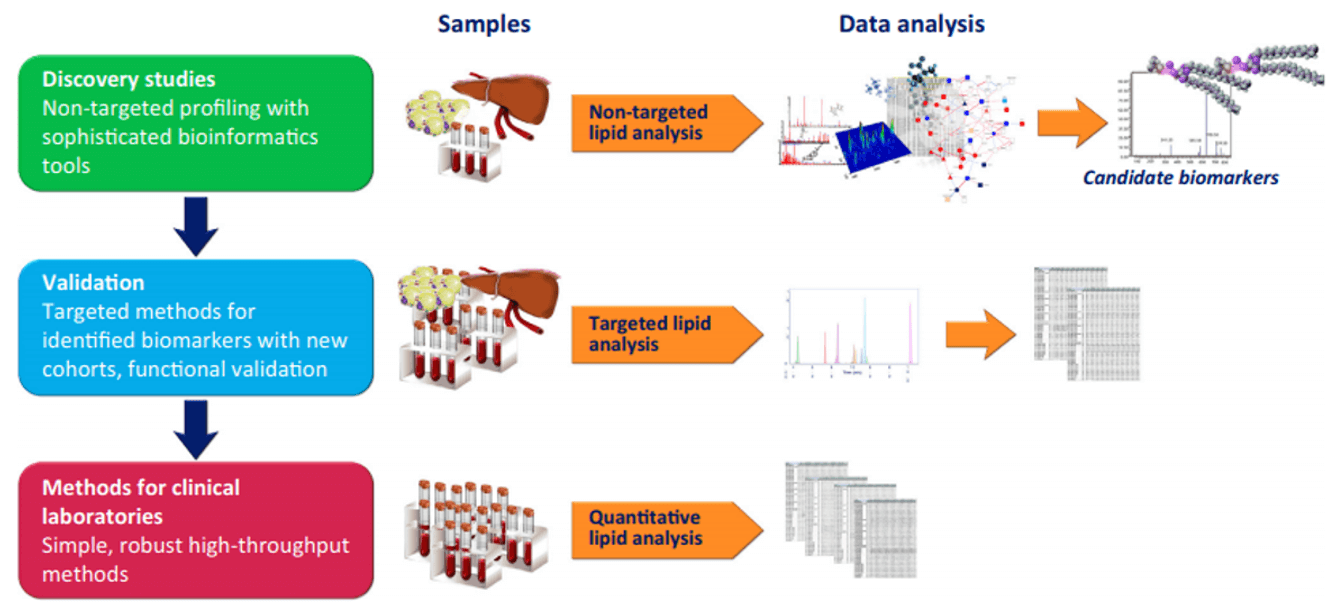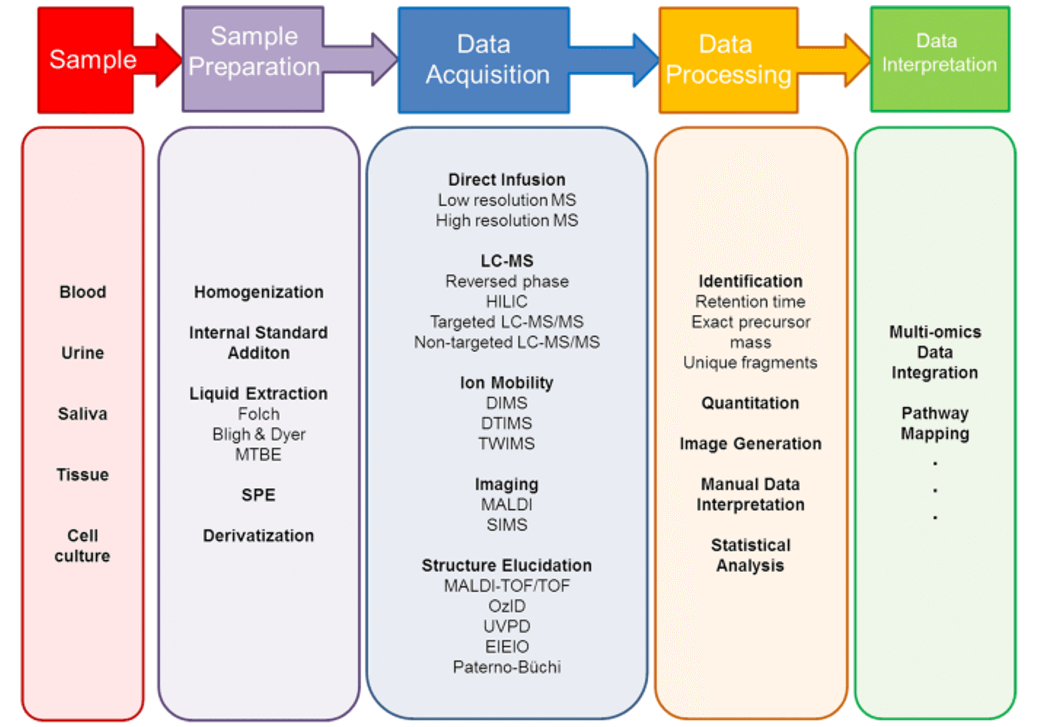Lysophosphatidylglycerol Analysis Service
Lysophosphatidylglycerol (LPG) is a precursor of de novo synthesis of phosphatidylglycerol (PG). LPG can play a biological effect as a lipid medium in the body.
In lung-related diseases, LPC is involved in lung inflammatory damage, such as acute lung injury and chronic lung diseases such as asthma. LPC also plays an important role in mediating lung inflammation and allergic reactions through mast cells. High levels of LPC have a series of membrane damage and toxic effects in a variety of cells and tissues, which can directly affect the permeability of cell membranes. In addition to pro-inflammatory effects, polyunsaturated LPC variants, such as LPC20:4 and LPC22:6, can act as effective anti-inflammatory agents that can counteract the immune system response induced by saturated LPC.
In order to better clarify the relationship between lysophosphatidylglycerol and the pathogenesis of various diseases, provide new targets for disease treatment and provide new ideas for individualized diagnosis and treatment, it is necessary to detect and analyze lysophosphatidylglycerol.

The advantages of LC-MS/MS method include relatively higher sensitivity and selectivity and short run times. With experienced scientists at Creative Proteomics, we have developed a reliable and reproducible method using highly sensitive LC-MS/MS method for the rapid identification and quantification of lysophosphatidylglycerol in different sample types, which can satisfy the needs of academic and industrial study in your lab.
Our Lysophosphatidylglycerol Analysis Service
Absolute quantification: Use external standard method to quantify, and use internal standard for correction, qualitative and quantitative is more accurate.
High sensitivity: We use liquid chromatography coupled with triple quadrupole mass spectrometers for lysophosphatidylglycerol analysis service (Triple Quad™ 6500 LC-MS/MS System).
 Fig 2. The workflow of lysophosphatidylglycerol analysis service
Fig 2. The workflow of lysophosphatidylglycerol analysis service
Sample Requirements
We routinely cover a rich variety of sample types, including cells, tissue, blood and plasma.
Solid tissue (typically 0.1–0.5 mg wet weight, initially frozen in liquid nitrogen) or cell suspensions (typically 105–106 cells).
Why Choose Us?
- Fast turnaround time: Quality lipidomics services at a low price and fast turnaround time. Send us your samples and receive your results within 1-4 weeks.
- High throughput: Only one injection can run both quantitative MRM and qualitative QTRAP scans to maximize throughput.
- One-stop analysis service: Provide comprehensive services from sample preparation, standard addition, mass spectrometry analysis, data processing, and data comparison.
- Detailed report: Experimental process, MS/MS instrument parameters, quality control parameters, raw data and the final result of the comparison.
- We will use our expertise to help you interpret the results and provide you with actionable recommendations on how to utilize these results in your research or business.
If you have any questions about our lysophosphatidylglycerol detection service, please contact us.
Reference:
- Makide K.; et al. Emerging lysophospholipid mediators, lysophosphatidylserine, lysophosphatidylthreonine, lysophosphatidylethanolamine and lysophosphatidylglycerol. Prostaglandins & other lipid mediators. 2009, 89(3-4): 135-139.
* Our services can only be used for research purposes and Not for clinical use.
Services:
Resource:
Platform:



 Fig 2. The workflow of lysophosphatidylglycerol analysis service
Fig 2. The workflow of lysophosphatidylglycerol analysis service
